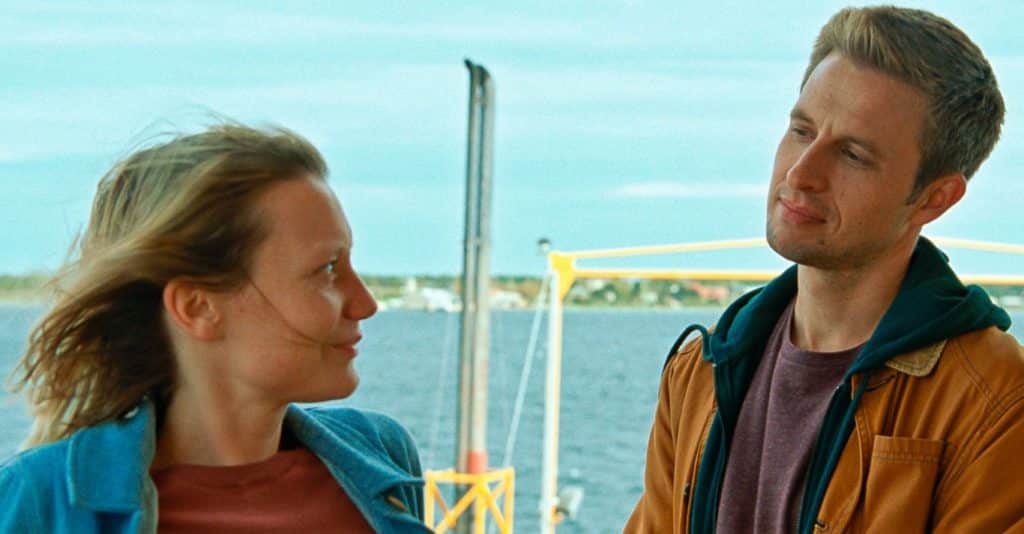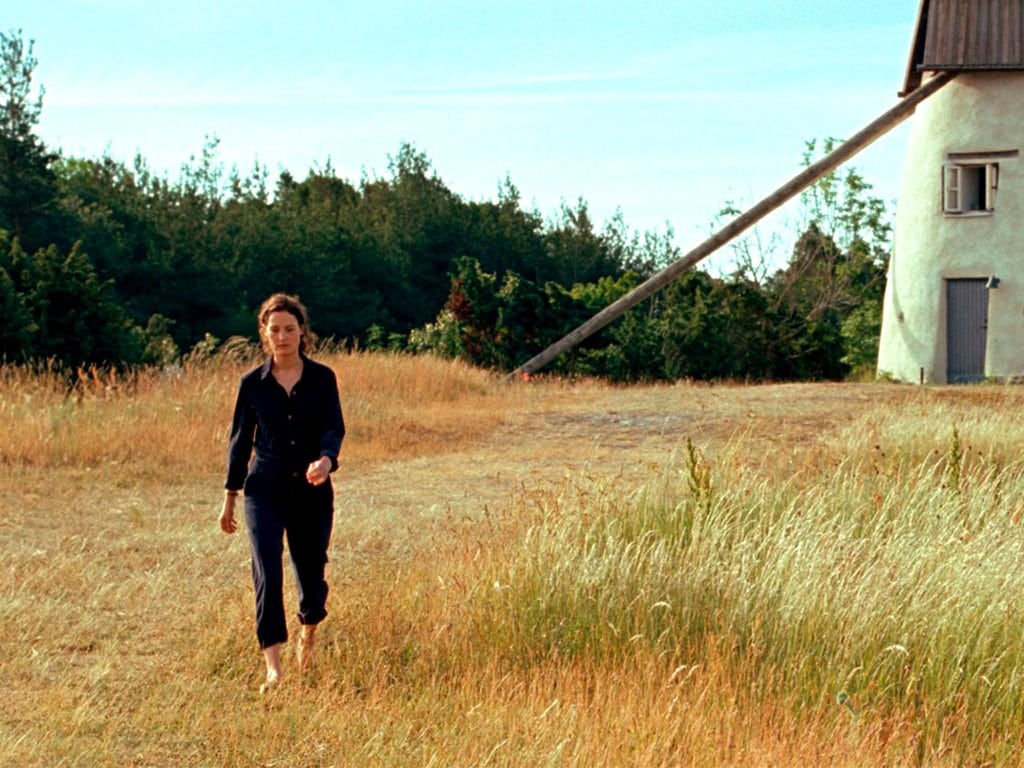Read also:
How to Watch FX Live Without CableHow To Watch AMC Without CableHow to Watch ABC Without CableHow to Watch Paramount Network Without CableMia Hansen-Løve’s latest wrestles with the creative and romantic frustrations between men and women, with Ingmar Bergman watching mindfully overhead.
(This review is part of our coverage of the 2021 New York Film Festival.)
It’s an unwritten rule of film festivals that there have to be at least a few films in the program dealing with either the history of cinema or the filmmaking process. Bergman Island, the latest from Mia Hansen-Løve, covers both of those bases. It’s a quietly beguiling look at a pair of filmmakers as they go about generating their latest projects, literally standing in the looming shadow of one of filmmaking’s most towering figures.
The pair in question is Tony (Tim Roth) and Chris (Vicky Krieps), a couple who have left their young daughter in the care of relatives to spend a summer as part of a writer’s residency program. They come to the island of Faro, the same place where legendary director Ingmar Bergman shot a number of his classic films (and spent the last years of his life).
The place has now been turned into a sort of laidback theme park for cineastes to come and pay homage. Indeed, Tony and Chris have even been put up in one of Bergman’s old cottages where Scenes from a Marriage, his lacerating portrait of a collapsing marriage, was filmed.

Tony and Chris aren’t exactly collapsing when we meet them, but there are hints of certain fissures in their own relationship. At one point, Chris introduces Tony as “a friend”; later on, while he’s delivering a master class to the attendees, she cuts out partway through to go off on a trip to a nearby beach with a young Swedish film student.
They also have markedly different approaches to their respective creative processes. For Tony, it appears to be a breeze, but it doesn’t come as easily for Chris, who compares the writing process to self-torture. At one point, she seeks Tony’s advice on how to proceed; while his demurral is sound from a logical perspective, it’s delivered so glibly (not unlike the answer he might give someone at a Q&A) that it might have been better if he’d said nothing at all.
This leads to the film’s biggest narrative shift when Chris begins to talk out her proposed project to Tony — which Hansen-Løve visualizes as a movie within another movie. In this story, a young filmmaker (Mia Wasikowska) finds herself reuniting with her long-lost first love (Anders Danielsen Lie) when they are both invited to a friend’s wedding on Faro.
Intriguingly, Hansen-Løve seems to have the same kind of ambiguous relationship with Bergman and his legacy that Chris does.
This sequence goes on for so long it may begin to frustrate viewers who want to get back to Chris and Tony. But it’s fascinating to see how Chris has processed and channeled her experiences into her project, and how she’s working things out in her mind. (Fans of Hansen-Løve will also note that details of Chris’s project are strikingly similar to her own breakthrough film, Goodbye First Love.)
As it turns out, the real subject of Hansen-Løve’s eye isn’t so much the relationship between Chris and Tony as it is Chris trying to establish herself as a female voice in an artistic medium that has long been dominated by men. (And where the bad behavior of many men is overlooked because of their artistic statures.)
At one point, Chris learns that Bergman had nine children by six different women—one of whom didn’t even know until years later—and was not exactly a close parent to any of them. She surmises that there’s no way a female artist would have been able to get away with such behavior, much less continue to be revered.

Intriguingly, Hansen-Løve seems to have the same kind of ambiguous relationship with Bergman and his legacy that Chris does. Although she shot on Faro, it doesn’t look or feel anything like a Bergman film; there’s a warmth that was hardly ever on display in Bergman’s often-punishing works.
A good deal of that also comes from Krieps’ luminous central performance, delivering her best and most compelling work since her breakthrough in Phantom Thread. She perfectly encapsulates Chris’s struggles to establish her own voice against both Tony and Bergman (whose ghost supposedly lingers at Faro, and definitely does in the minds of many filmmakers).
Bergman Island isn’t quite a masterpiece; Hansen-Løve doesn’t get the various elements to cohere as well as she did in Goodbye First Love and Eden. While you don’t have to be a Bergman fan to watch it, those with a strong working knowledge of his life and career will probably find some amusement in how his legacy has been commodified.
Nevertheless, it’s a striking look at the artistic process through a type of voice that usually does not get such cinematic treatment. On that basis—along with a wonderful Krieps performance—it deserves to be seen.
Bergman Island comes to theaters and VOD October 15th.